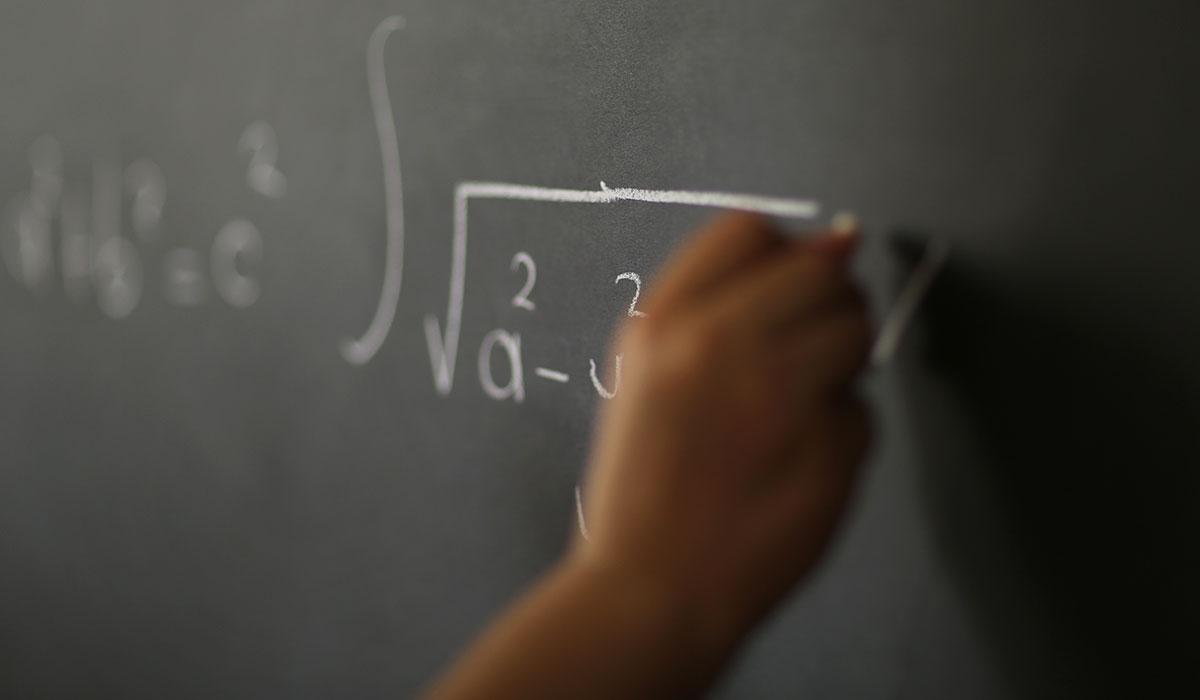
Even though we’ve been operating remotely, there’s been big changes happening at TMCC this summer. When TMCC added a new academic division, the Math and Physical Sciences Division, this impacted other areas of the college, too. What can you expect from this new division? And what about our second new division of Allied Health, Life Sciences and Public Safety? And Applied Technologies, which has officially selected a Dean?
In this three-part series of news stories, we fielded all your important questions and put together three quick guides on what to look for in the fall semester from these newly restructured academic divisions. In a nutshell: TMCC has a lot to offer, no matter what kind of student you are: a new student who is starting on their professional journey, or a returning student who is looking to change careers.
About the Math and Physical Sciences Division
The newly formed division of Math and Physical Sciences is under the leadership of Math Professor and now Dean Anne Flesher, who assumed the new position earlier this summer. As Flesher admits, much will “stay the same” for this division that includes mathematics, computer science, engineering, physics, environmental science, geology, and astronomy programs. Yet, the ability for the programs to stand on their own will bring attention to some of TMCC’s most popular majors.
“I’m very excited that this division will have its own identity,” said Flesher, who admits that the restructuring opens up some breathing room for three programs that impact the majority of TMCC students.
Math: Moving to a Corequisite Model
Under the direction of the Nevada System of Higher Education (NSHE), TMCC’s Math Department is moving to the corequisite model for Math 120 and Math 126. This means all students starting Fall 2021, depending on their placement score or program, will be able to take college-level math—either Math 120 or Math 126, either on its own or paired with a 2-credit or 3-credit support class. The support class, which is integral to the corequisite model, provides the “just in time” support, blended into the higher-level course. The plan is to begin with Math 120 with a 2-credit corequisite support course of Math 20 in Fall 2020 open to any student who places below Math 096, and move to full implementation starting Fall 2021.
In the TMCC model the “just in time support comes right before the 100-level class,” explains Flesher. “For example, if they are enrolled in Math 120 at 11 a.m., they are enrolled in the 9:30 a.m. support class on the same day.”
Since the support class covers the remedial material that is then threaded into 100-level class, where the student uses it, the model can be a powerful strategy to increase retention and allow students to complete their 100-level math course their first semester. “This cuts out layers of remediation classes,” said Flesher. “I’m very excited about this new class structure, and excited for the pilot program this fall.” The Corequisite model will see full implementation in Fall 2021.
Flesher, who has been a part of the NSHE team to develop the corequisite action plan, including pathways, placement, curriculum, and assessment, from the beginning, said this new model of curriculum design streamlines students through their math requirements. “It’s a big national movement,” she said. “The corequisite model is happening across many states, and it’s been mandated. So, by the fall of 2021, every student incoming degree-seeking student will be enrolled in a 100-level math class with or without support.”
For students who need more information on which math class in which to enroll or questions about the accompanying support class, contact the Math Department directly at 775-673-7181.
Introducing... TMCC’s Programs in Engineering and Computer Science
Beyond math, however, this division offers both STEM and non-STEM students a chance to flex their analytical thinking skills in the realm of science and technology. “This new division will give our computer science and engineering programs a stronger identity on campus,” she said. “While the percentage of underrepresented students is increasing in the STEM tracks, we still need to do more to improve that number in these important educational pipelines.”
In Fall 2019, TMCC’s engineering program had 250 declared majors, and computer science had 157. “These fields have so many opportunities,” said Flesher. “You do not need to go to graduate school to be employable and successful. A student can attend TMCC, complete their AS in Computer Science or Engineering, get a great foundation in the subject and then transfer to a four-year university and finish their bachelor’s degree—and be ready for the workforce.”
If you would like to learn more about the Computer Science or Engineering programs at TMCC, contact the Physical Sciences Department at 775-673-7183.






